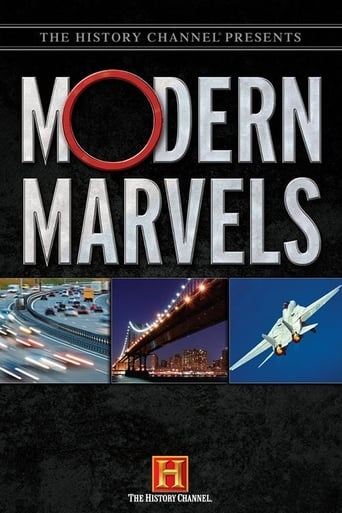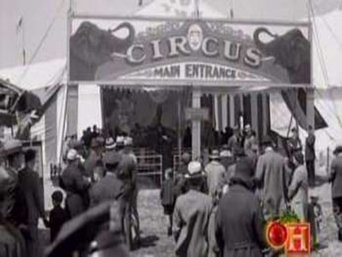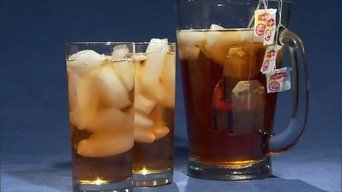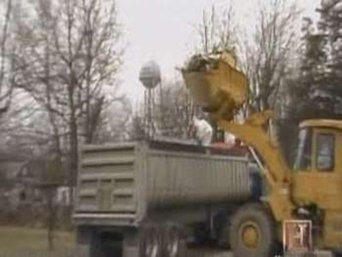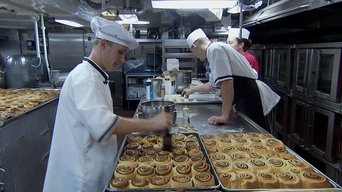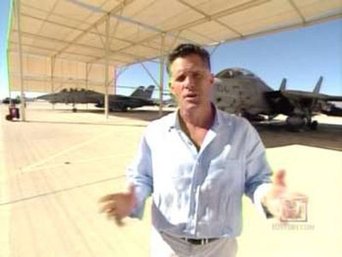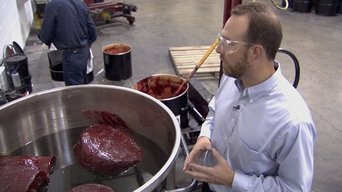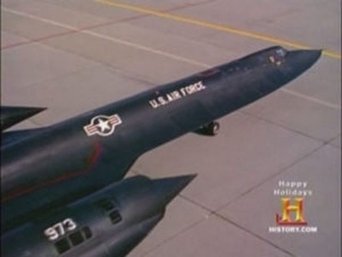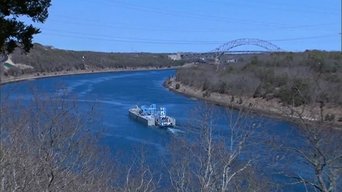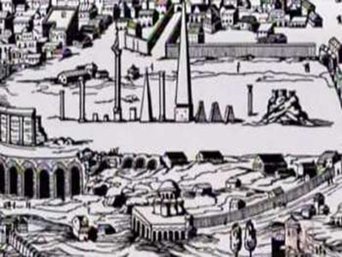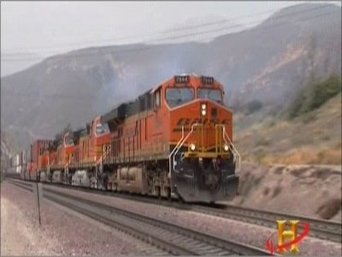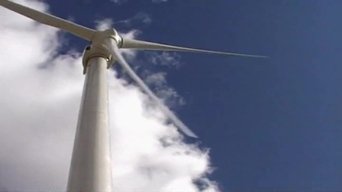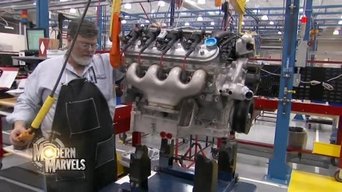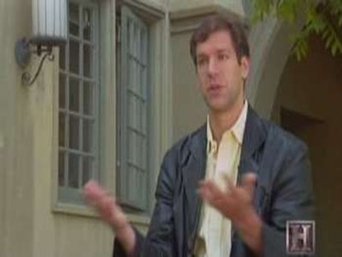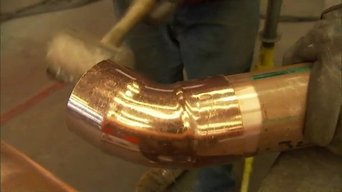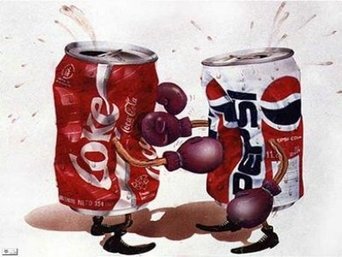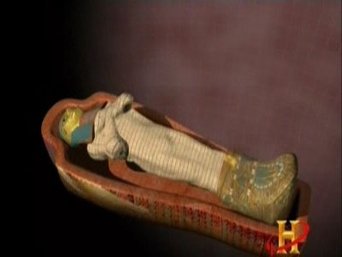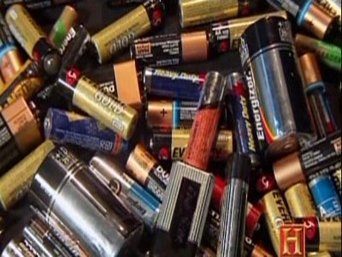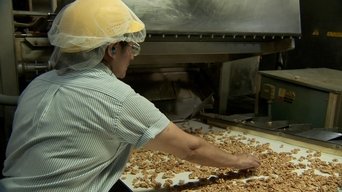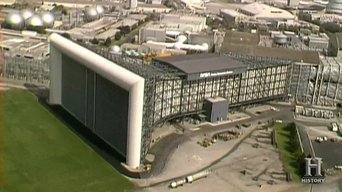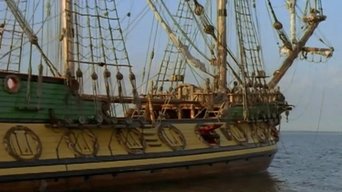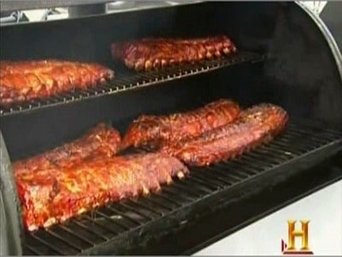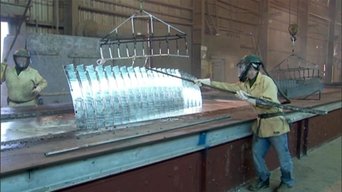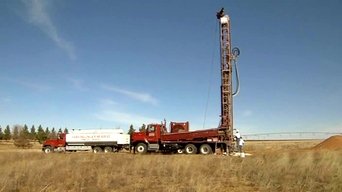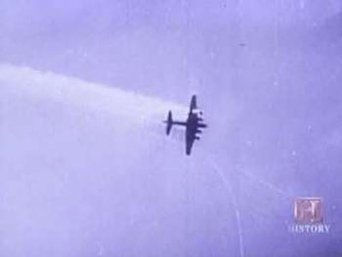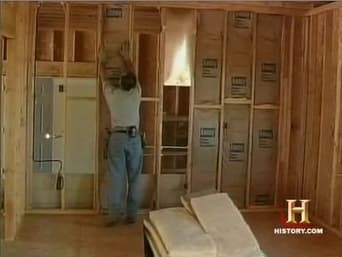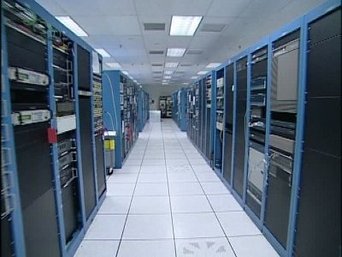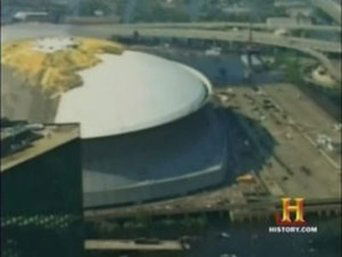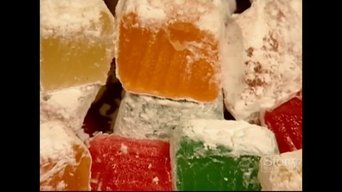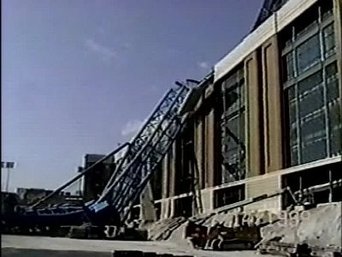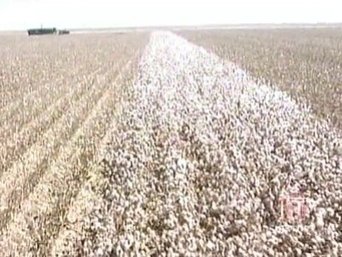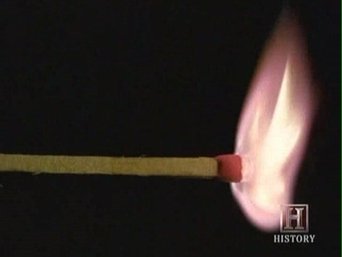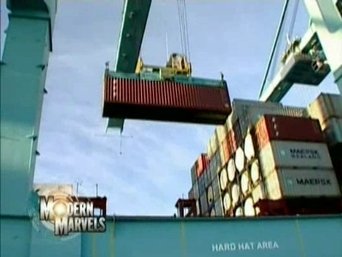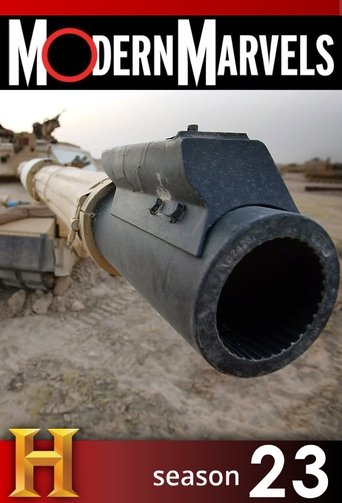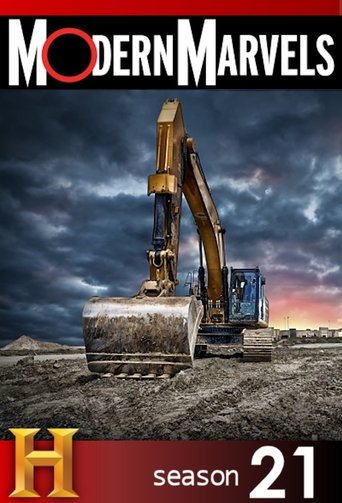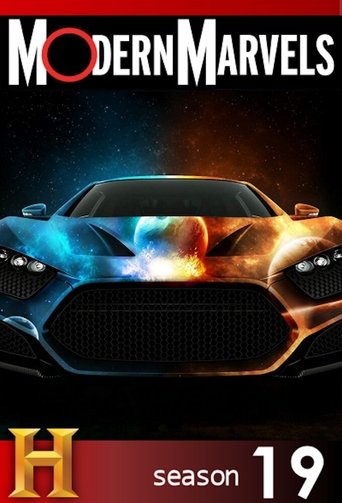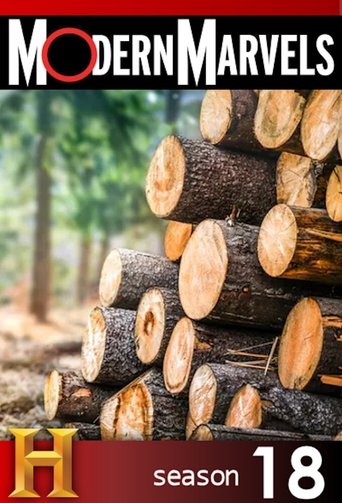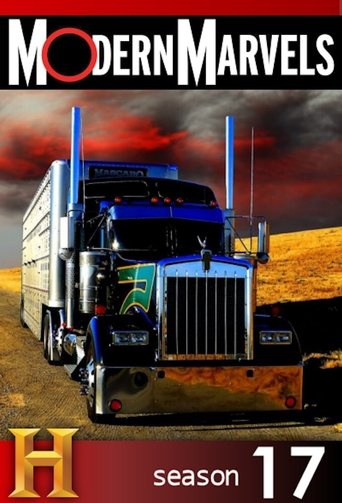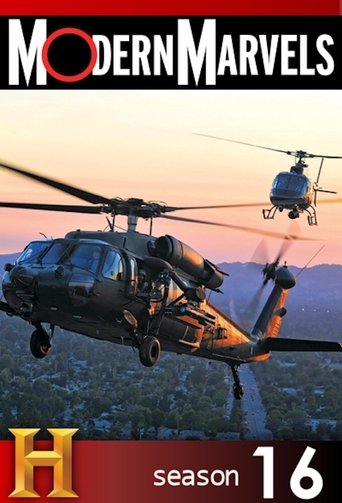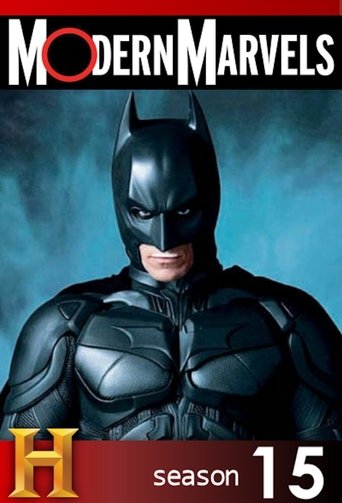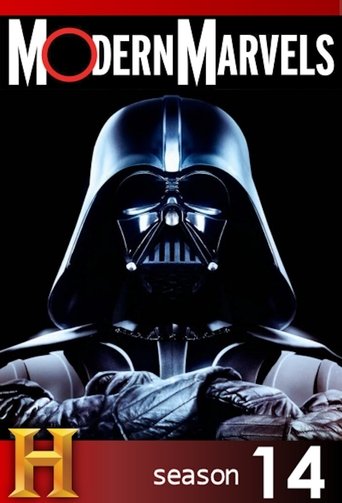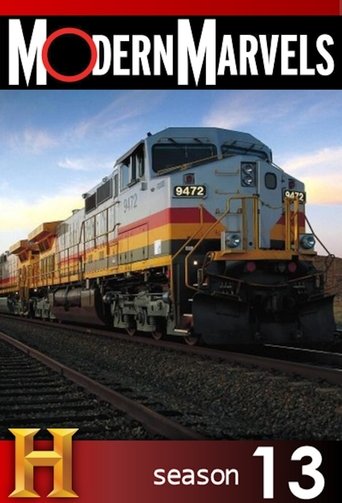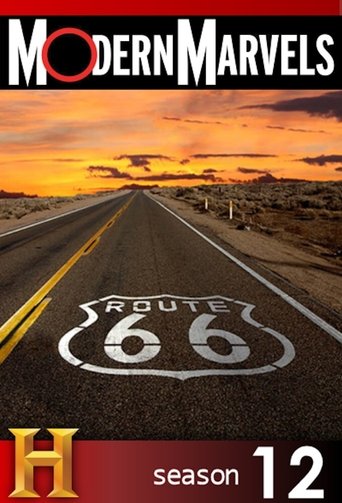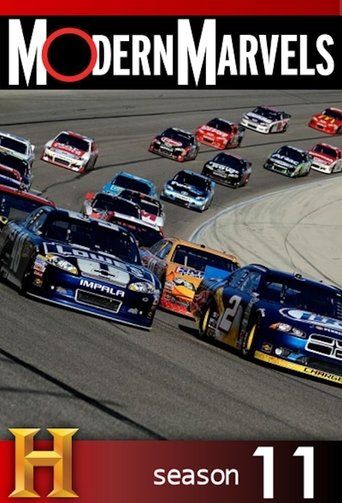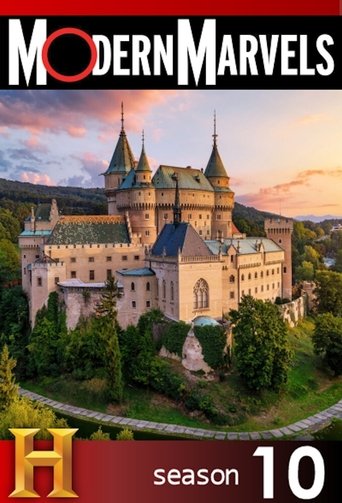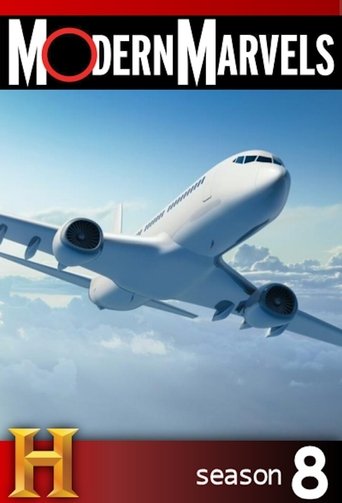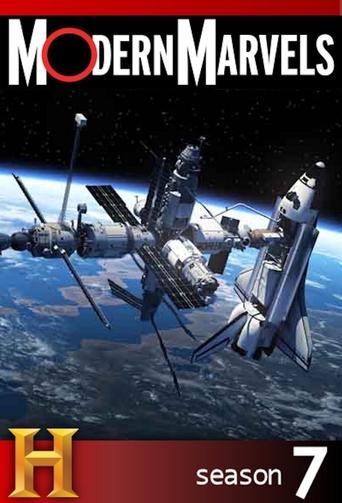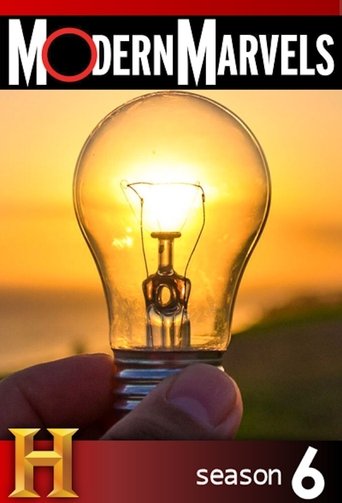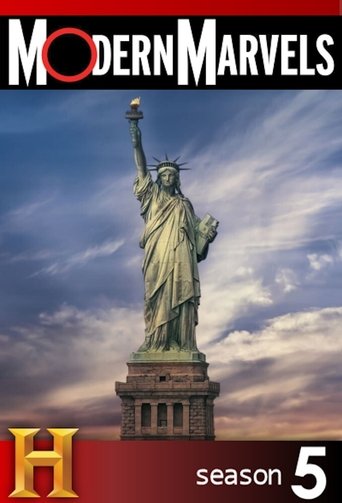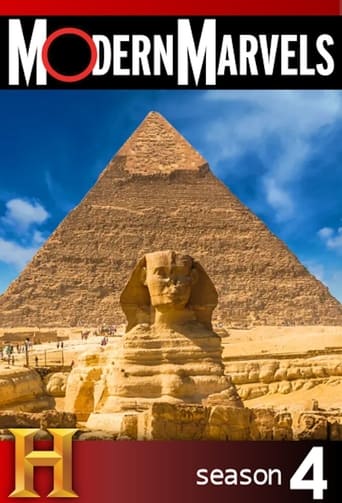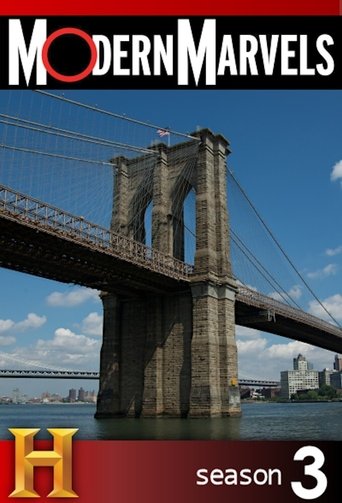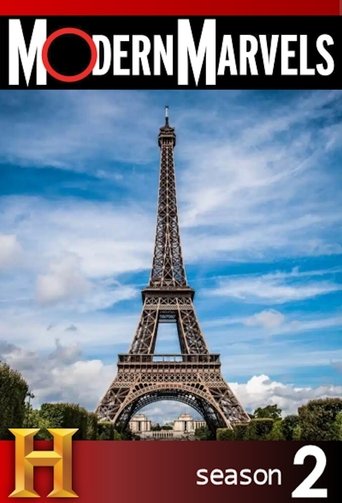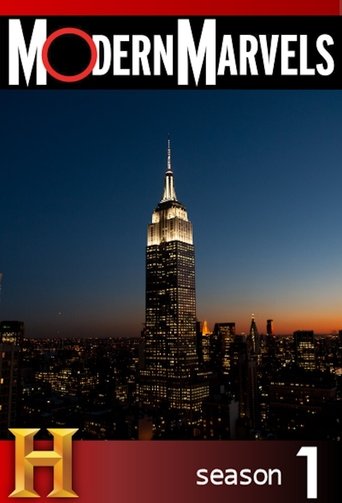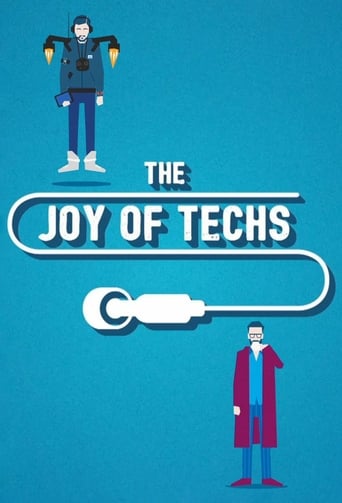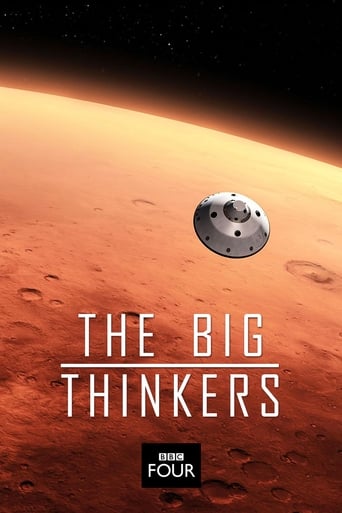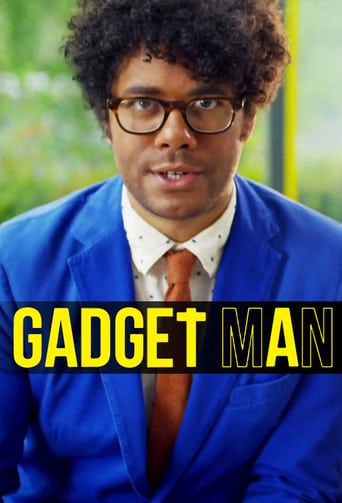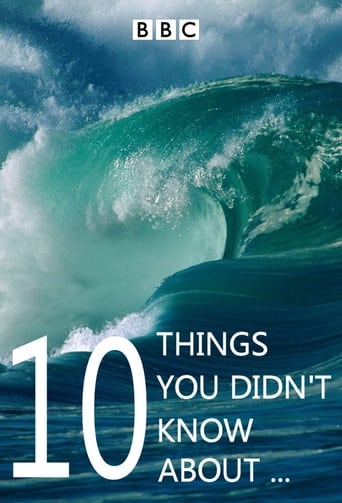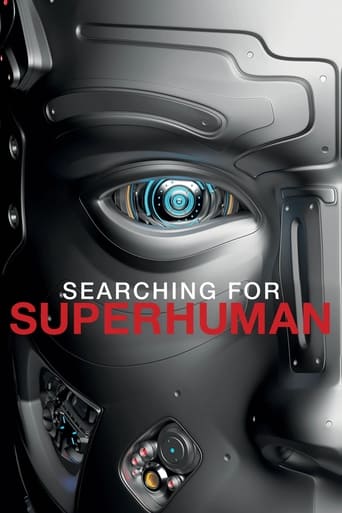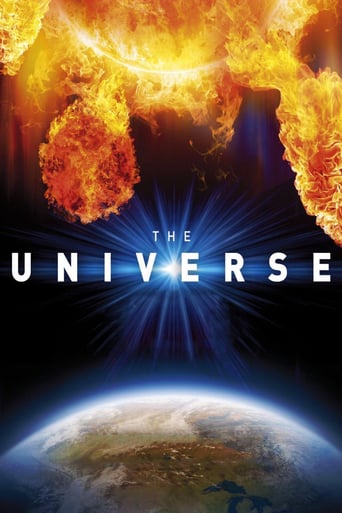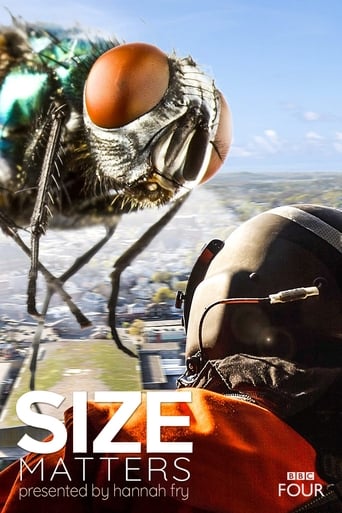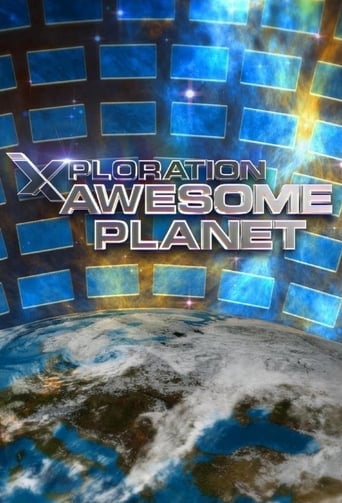Modern Marvels Season 13
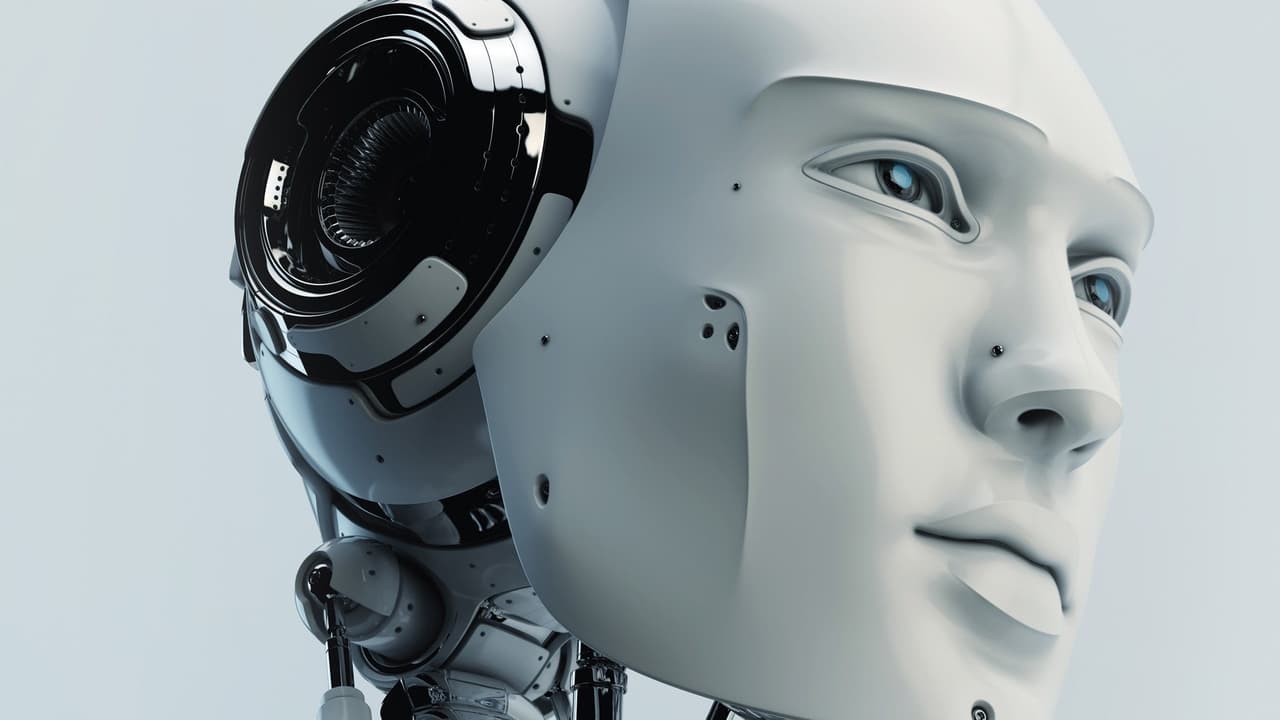
HISTORY’s longest-running series moves to H2. Modern Marvels celebrates the ingenuity, invention and imagination found in the world around us. From commonplace items like ink and coffee to architectural masterpieces and engineering disasters, the hit series goes beyond the basics to provide insight and history into things we wonder about and that impact our lives. This series tells fascinating stories of the doers, the dreamers and sometime-schemers that create everyday items, technological breakthroughs and manmade wonders. The hit series goes deep to explore the leading edge of human inspiration and ambition.
Watch NowWith 30 Day Free Trial!
Modern Marvels
1993 / TV-PG



HISTORY’s longest-running series moves to H2. Modern Marvels celebrates the ingenuity, invention and imagination found in the world around us. From commonplace items like ink and coffee to architectural masterpieces and engineering disasters, the hit series goes beyond the basics to provide insight and history into things we wonder about and that impact our lives. This series tells fascinating stories of the doers, the dreamers and sometime-schemers that create everyday items, technological breakthroughs and manmade wonders. The hit series goes deep to explore the leading edge of human inspiration and ambition.
Watch Trailer
Modern Marvels Season 13 Full Episode Guide
AD
Christmas is observed by many people around the world, for both religious reasons and more secular purposes. Trees, lights, ornaments, and window displays are a big part of the celebration. Thanks to technological advancements they are cheaper, safer and more spectacular than ever before.
AD
After water, tea is the second most popular drink in the world. It has been around as a drink for 5000 years, and 6 billion pounds of tea are harvested annually.
AD
It is the bane of every suburban parent and the joy to every school kid. Born in a swirling storm cloud through a process called nucleation, the characteristics of snow flakes are threatened by pollution trapped in the clouds.
AD
In March of 2005, the BP Refinery in Texas City, Texas, suffered a series of explosions that decimated a large portion of the facility and killed 15 workers. Then the unusual series of events that caused American Airlines flight 587 to fall from the sky. What happened in Times Beach, Missouri, when a local waste hauler oiled down dusty roads with oil that was laced with dioxin? Look at what went wrong with NASA's Skylab in 1974 and finally examine the fire that destroyed the gas company, Praxair, in June of 2005.
AD
In America's orchards and farm fields, the constant struggle between hand labor and mechanization has produced dozens of efficient and sometimes bizarre harvesting methods. Learn the secrets of the orchard manager and his ladder crew as they check fruit pressures and barometric readings. Visit California's largest fruit packing house and try to keep up with 10-fruit-per-second conveyors. Then off to the corn fields of Nebraska and the cranberry marshes of central Wisconsin. Finally go underground to the world's largest mushroom farm where the harvest takes place in limestone caverns that run some 150 miles. From fruit tree picking platforms to cranberry beaters and corn pickers, farmers constantly strive to speed the harvest.
AD
A glass a day is said to keep the doctor away. A defeated Napoleon drowned his sorrows in it; Thomas Jefferson became obsessed with it. Wine is an integral part of our culture and more wine is consumed today than ever before. Supermarket shelves that once carried only box wine and jugs are now lined with wines from Australia, Chile, and South Africa. Aerial imaging and infrared photography once used by NASA to map the moon is now employed by wineries to analyze soil, vine vigor, and even disease. Paying tribute to wine's unique history we will travel the world over to explore wineries, the worlds' most historic wine cellar and the oldest restaurant in Paris.
AD
It slices and squeezes, sorts and sizes, mixes and cooks. Every morning we count on it to keep our orange juice fresh, our eggs whole, our cereals flaked, and our McGriddle syrupy--this is Breakfast Tech.
AD
Our basic need and desire for food has made the supermarket one of the great success stories of modern retailing. Making customers' visits to the market as efficient as possible has led to bar coding and a scale that recognizes the type of produce placed on it. Explore the psychology of the supermarket including store layout, lighting, music and aromas that trigger the appetite. With a growing percentage of the public interested in eating healthier foods, organic grocers are carving out an increasingly large niche.
AD
Discovered around 18,000 years ago, tobacco was first cultivated in the Andes between 5000 and 3000 B.C. At a modern tobacco farm in North Carolina, a farmer will show how the crop is harvested and cured and visit the Fuente cigar plantation in the Dominican Republic. While tobacco has brought pleasure to countless smokers the world over--it has sent millions to an early grave. In an interview with the Surgeon General, explore this leading public health issue. The show will also look at smokeless methods of consumption as well as explore the use of nicotine replacement therapy.
AD
Hosted by Terry Deitz, a former Tomcat pilot, this special explores the legacy of one of the greatest fighter jets ever built. Witness first hand the last F-14 catapult launches and arrested trap landings aboard the USS Theodore Roosevelt. Hear what the aviators and sailors who have flown and maintained this iconic aircraft over the years have to say about its long lived active duty career. Deitz will ride shotgun one last time before the F-14 is retired. Then reflect with veteran pilots, Navy brass, and airplane enthusiasts as the world bids farewell at the F-14 Memorial and Final Flight Ceremony at the Naval Air Station in Oceana, VA.
AD
Strength...a powerful word, but what does it mean? How is it measured? Why are some things simply stronger than others. How strong is a rope, a tractor, a diamond, a tugboat or even plastic. How and why strength matter to us every day.
AD
It's an art, it's a science and it's a marriage of vapor and water. From the elite to the illegal, the banned, to the celebrated, the distillation of spirits is a 50 billion dollar a year business. Visit brandy, liqueur, moonshine, and absinthe distilleries to see how this magic is done.
AD
Invented by the Chinese in about 3000BC, it spread the word of God and war. It set us free and spelled out our rights. It tells stories, sells products and solves crimes. It's ink and it's everywhere!
AD
It's one thing to make a 60-foot-long jet aircraft seem invisible, but quite another to hide a 400-foot-long warship from the prying eyes of an enemy. Explore the challenging world of stealth technology at sea and how modern engineering can make our largest warships appear to be tugboats or fishing vessels.
AD
They are the swarthy eagles of the sky: Past, present, and future advances in stealth military aircraft.
AD
The Atlantic Intracoastal Waterway is comprised of a system of canals, land cuts, and a series of natural and artificial barrier islands, which provide a protected passage for low-draft vessels wishing to avoid the tumultuous currents of the Atlantic Ocean.
AD
Teamed with leading archeologists and experts, peel back the layers of the past--to reveal a hidden history that hasn't seen the light of day for ages.
AD
Explore the history of freight transportation from its humble beginnings as tramways in mines to complex system of rails that stretches to every corner of the nation.
AD
Take an in-depth look at the most proven and reliable sources: solar, wind, geothermal, biofuels, and tidal power. From the experimental to the tried-and-true, renewable energy sources are overflowing with potential... just waiting to be exploited on a massive scale.
AD
Buckle up for a rip-roaring ride through the world of extreme horsepower. Experience the fastest accelerating cars on earth. Find out how horsepower was first coined as a marketing tool for the steam engine in the early 1800s and meet the horsepower police--the Society of Automotive Engineers who test today's most powerful car engines. Feel the amazing power of Unlimited Hydroplane racing as 3-ton boat-beasts careen across water at speeds of over 200 miles per hour. Journey to the bowels of an enormous container ship where the world's most powerful diesel engine provides over 100,000 horsepower. At the Hoover Dam, watch as it harnesses the enormous power of water. Explore the 80,000 horsepower pumping units at the Edmonston Pumping Plant that delivers 2-billion gallons of water a day to thirsty Californians. And sit behind the steering wheel of a new generation of hybrid cars that boast 400-horsepower yet get 42 miles per gallon of gas.
AD
The greatest religious structures are marvels of engineering, technology, and invention, representing not only the glory of God, but also the ingenuity of man.
AD
The first specialized gun, the British upper-class used it to shoot birds and small game for sport. The shotgun took on a variety of roles, used by hunter and warrior alike.
AD
It transports electricity, water, and heat. It brings music to our ears and beauty to our eyes. Copper--its impressive traits, long history, and how it's mined. This versatile metal’s most famous attribute is its ability to conduct electricity.
AD
Coke vs Pepsi for world supremacy. Each year, Americans consume more soft drinks than tap water. Available in nearly 200 countries, Coca-Cola alone sells one-billion bottles, cans, and glasses of pop daily, with archenemy Pepsi-Cola a close second. We look at the legendary rivalry between these giants in a $100-billion industry built on little more than sugar and water as they battle not just to quench consumer thirst, but for their hearts and minds as well.
AD
Water, the most needed substance for life, so powerful it can carve our landscape, yet so nurturing it can spawn life and support its intricate matrix.
AD
From collapsing floodwalls in New Orleans to high-tech mechanical storm surge barriers in Europe, we'll explore the 2,500-year history of keeping rivers and tides at bay by erecting levees.
AD
After thousands of years, Egyptian mummies are speaking from the grave. With the use of state-of-the-art computer tomography scanning we explore inside a 2,000-year-old mummified body of an Egyptian child.
AD
Mixtures of metals and caustic chemicals that make our tech, tools and toys surge with energy.
AD
AD
AD
AD
Pintsized as a pea or big as a bowling ball, nutritional, durable, and versatile, nuts have been a staple of the human diet since time began, and archaeological evidence places them among our earliest foods. Nuts sustained the imperial armies of Rome and China, the royal navies of England and Spain, and the native tribes that roamed the American wilderness.
AD
The development of the deadly Avtomat Kalashnikova, 1947, known as the AK-47, is discussed by its inventor, Mikhail Kalashnikov, who talks about working within the secretive world of the Soviet military at the height of the Cold War.
AD
Skyscrapers are an extraordinary feat of human engineering: exposing millions of pounds of concrete and steel to the enemy forces of wind and gravity. Starting with the foundation and on through the support structures and concrete flooring, every piece of these superstructures has to be super-strong. Go behind the scenes with the five tools that make these buildings possible: the foundation drill rig, the tower crane, the impact wrench, the power trowel, and the total station.
AD
Join us for another look at big machines. At NASA's Ames Research Center, we visit the world's biggest wind tunnel, part of the National Full-Scale Aerodynamics Complex, and one of the biggest and most complex flight simulators, NASA's Vertical Motion Simulator, or VMS. At the Joy Mining Machinery plant in Franklin, Pennsylvania, giant machine tools form, cut, and measure the enormous individual parts that make up a Continuous Miner, the biggest underground mining machine in the world. But big machines aren't limited to science and commerce. Ride with us on the biggest observation wheel in the world, the London Eye, which stands 443 feet high and provides a 360 degree unobstructed view of London. And we take a look at IMAX technology. The film, cameras, projectors, and theater screens are the largest in the world. Finally, we take a ride on every lawn tender's dream machine--the Claas Cougar, the world's biggest lawnmower.
AD
Where do machines go when they die? From B-52 Bombers to massive aircraft carriers, from passenger cars to Cold War cruise missiles and remnants of the Twin Towers, all that we manufacture has a lifespan. But reaching the end of their original purposes can be just the beginning.
AD
Bold, cunning, and audacious, pirates are a breed of fighting men and women who have terrorized the high seas since before recorded history. At the height of their power in the 1700s they literally influenced the fate of nations when they became embroiled in the rivalry between England and Spain. This special will visit maritime museums and shipwreck sites, utilize walk-and-talk demonstrations of fire arms, swords, and navigation instruments to help spotlight the innovations pirates brought to maritime technology. Includes a look at how many pirates modified their ships to make them faster and more powerful.
AD
Since the creation of black powder in China centuries ago, explosives have been decisive on the battlefield. Follow their incendiary story from ancient times right up to today's plastic demolitions.
AD
AD
An old-fashioned style of cooking, barbecue has evolved into a modern food craze and spawned a multi-billion dollar industry. We digest famous barbecue cook-offs and visit long-established barbecue restaurants like Arthur Bryant's in Kansas City, where the huge grills and taste thrills of true barbecue are more popular than ever. At home, three out of four US households own a grill. After WWII's end, the phenomenon of backyard barbecuing swept the nation, thanks to inexpensive and mass-produced grills, including the kettle-shaped Weber. Our tour of Weber's modern factories shows how they keep pace with demand by manufacturing more choices than ever, including portable mini-grills. We also examine the variety of fuels available for the savory selection of spicy sauces and rubs. Join us as we devour the mouthwatering flavors of BBQ in this episode.
AD
Visit the United States Mint and the Bureau of Engraving and Printing for an inside look into the government facilities where U.S. legal tender is generated. Learn the history behind these two institutions and the process of making currency, including how the complex security features on bank notes are created and how the government agencies monitor and intercept counterfeit bills.
AD
They are elements that occupy a select portion of the periodic table and are so essential to America's economic and military might that they are stored in the National Defense Stockpile in case of all-out war. We plan a riveting visit. Some of the vital heavy metals that we survey include copper, uranium, lead, zinc, and nickel. We also take a look at superalloys--consisting of steel combined with chromium, cobalt, and dozens of other heavy metals--that resist corrosion and perform increasingly elaborate functions. From Earth to space, from cosmetics to vitamins, in a million different ways, heavy metals are here to stay!
AD
More than a century ago two men controlled nearly all of U.S. copper production, transforming Butte, Montana from a washed-up gold-mining camp into a global powerhouse. William Clark, a ruthless banker known for preying on the misfortune of miners and Marcus Daly, a self-made man with a knack for knowing where to dig, created huge empires and lived like kings, while fighting a ferocious, personal, battle that lasted nearly 25 years.
AD
One of the most prodigious American inventors, Ben Franklin is credited for creating things like the lightning rod, the armonica, the Franklin stove, bifocal glasses, and the flexible urinary catheter. In this episode of Modern Marvels, we examine how Dr. Franklin's inventive genius extended to things like Daylight Savings Time and the voluntary fire department.
AD
Remember “brick” cell phones, Pac-Man, Rubik’s Cube, Sony Walkman, and the first music CDs? Remember all the new and exciting gadgets of the 1980s? Join us as we investigate the transition from Industrial to Information Age–a digital decade dedicated to ergonomics and entertainment. The microchip ushered in an era that revolutionized the way we work, play, and communicate. And we tour Silicon Valley–birthplace of some of the greatest inventions from an amazing time of change, including the modern personal computer. Steve “Woz” Wozniak tells us about the evolution of Apple computers, and we talk to Sony–makers of the Walkman, Betamax, and the first CD players. A visit to the Computer History Museum shows fun technological “artifacts”, primitive by today’s standards. At Intel, makers of the first microchips, we learn why technology moves at such a fast pace. We also take a ride in a DeLorean DMC-12 sports car–few things moved faster.
AD
The program features the quest to drill the deepest hole ever and the scientific drill ship expected to perform the feat, and also looks at drills used to recover ice cores that will unearth thousands of years of climate history.
AD
Man has always had a need to move large amounts of earth. In this episode, we profile the technological advances which have allowed shovels to become absolutely enormous, capable of carrying 200 tons of earth in one load today.
AD
This is the true story of the scientific feats and failures of Hitler's Nazi Germany.
AD
Although quite simple in nature, insulation is a very important component in keeping our homes a comfortable temperature. In this episode, we'll find out the history of insulation and then visit manufacturing plants to find out how insulation is being made today.
AD
More engineering disasters are profiled, including the sinking of SS Edmund Fitzgerald in 1975 in Lake Superior; two Boeing 737 crashes; a diesel-fuel leak, a radiation-spilling accident at Santa Susana, an oil spill in the Monongahela River, and the failure of Galaxy 4 Satellite affecting communications and pagers nation-wide.
AD
Made by the tanning of animal hides, leather has proven to be a versatile and important material. Without it, the Pilgrims may not have survived the winters in Plymouth, and the Romans may not have been able to march to the Tigris.
AD
Modern Marvels examines the destruction Hurricane Katrina caused in New Orleans.
AD
Examining unusual World War II weapons that were in the planning or testing stages for use by the Allies. Included: floating tanks; pigeon-guided missiles.
AD
Examining unusual World War II weapons that were in the planning or testing stages for use by the Axis powers. Included: an assault rifle that could shoot around corners; a death ray capable of boiling people; and an army in space.
AD
It pulls, stretches, bubbles, hardens, crunches, and melts! We eat about 7-billion tons of it yearly. We’re talking about Candy–loved by kids and savored by adults. Candy-making evolved from a handmade operation to high-tech mass production. Nowhere is that more apparent than at Hershey’s. On a tour of their newest production facility, we learn how they process the cocoa bean. At See’s Candy, we see how they make their famous boxed chocolates–on a slightly smaller scale than Hershey’s. We get a sweet history lesson at Schimpff’s Confectionery, where they still use small kettles, natural flavors, and hand-operated equipment. Then, we visit Jelly Belly, purveyors of the original gourmet jellybean. Saltwater-taffy pullers hypnotize us on our sweet-tooth tour; we gaze at extruders making miles of licorice rope; and watch as nostalgia candy bars Abba-Zaba and Big Hunk get packaged. And in this sugary hour, we digest the latest sensations–gourmet chocolates and scorpion on a stick!
AD
Modern Marvels shows more of the world's biggest engineering disasters. We look at faults in the U.S. Army's Stryker Light Armored Vehicle, the Sunjiawan coal-mine explosion in China in 2005, the death of three iron workers at Milwaukee's Miller Park in 1999, and much more.
AD
Tune in as Modern Marvels looks into the history of cotton, a product used in hundreds of different products, from clothing to lipstick.
AD
Out of control it’s a monster with a voracious appetite. Properly harnessed it’s a force that has shaped our world. We’ve learned to create and exploit it, but we’ll never truly tame it. From furnaces to flamethrowers, fire testing to fireballs, now, Fire, on Modern Marvels.
AD
They hold just about everything we need, from condiments to cargo. Made of steel, aluminum, paper and glass, they protect and preserve. They're underground and above ground, they journey around the world. They've revolutionized civilization.
AD
Free Trial Channels
Seasons


